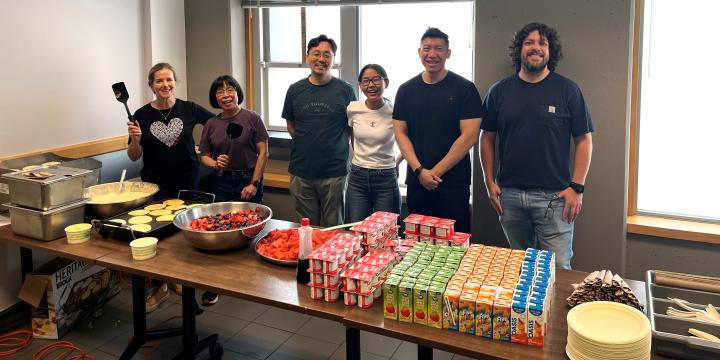
A few days ago, I was walking home when I saw someone experiencing an overdose. I immediately sprang into action – directing a bystander to open the man’s airway, yelling out for naloxone and calling 9-1-1.
As the emergency medical services dispatcher instructed, I began counting breaths; he was only breathing every 15 seconds. I then heard the dispatcher say “you have to start compressions.” I began compressions as the EMS dispatcher counted me along and encouraged me the entire time.
I continued compressions for about five minutes before the EMS arrived. The responders ran out with naloxone and administered it. Thankfully, the patient started to regain consciousness. It was a happy ending and I learned a valuable lesson: I will never go anywhere without my naloxone kit.
Hesitating in a time of crisis
Performing CPR or administering naloxone to someone having an overdose can save their life, but many people hesitate when they see someone in distress.
Some say it’s because they might do the wrong thing, others say it’s because they don’t feel comfortable or don’t want to get involved. The bottom line is, doing nothing can be the difference between life and death for someone.
I encourage everyone to do naloxone training and to keep a naloxone kit with them. The training is free and can be done online; completing this simple course can eliminate doubt and provide confidence in a very stressful situation where someone’s life is in balance.
More than 10,000 people have died of overdoses in Metro Vancouver since the opioid epidemic was officially named in 2016. Many of those lives could have been saved. It’s time that as a community we are prepared to help people in times of crisis.
If you do not have training and see a person overdosing, the best thing to do is call 9-1-1, or make sure someone nearby has made the call. The dispatcher will guide you every step of the way.
I was so grateful that I knew what to do when I found myself in this situation – I was ready to help and didn’t think twice about it. In the case of someone experiencing an overdose, the only thing you can do wrong is to do nothing at all.
BC Center for Disease Control started the Take Home Naloxone program in 2012 to provide life-saving training and kits to people at risk of an opioid overdose. To participate in free naloxone training and for more information, visit towardtheheart.com/naloxone.
Jill Metheral is the Manager of Aquatics & Group Fitness at the YWCA Health + Fitness Centre.

